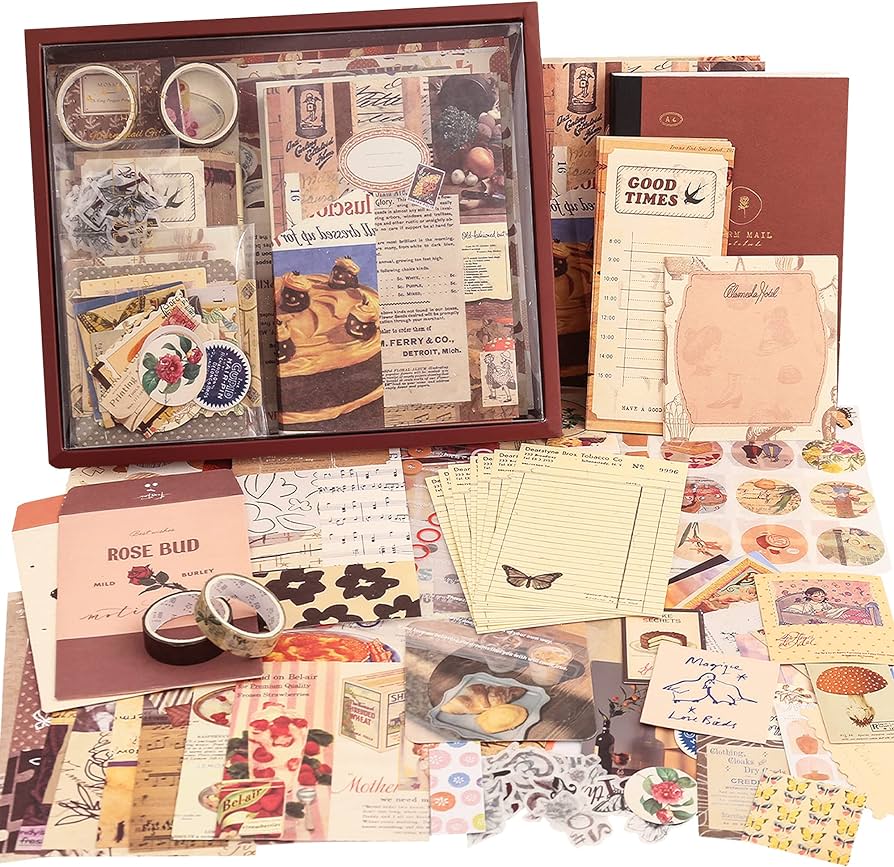
In today's fast-paced and demanding world, managing stress and anxiety has become a top priority for many individuals seeking a greater sense of well-being. This ultimate guide offers a comprehensive approach to using a journal as a powerful tool for stress management.
Drawing on evidence-based strategies and empathetic understanding, this guide will help you identify and understand your stressors, express and process your emotions, cultivate gratitude and positive thinking, explore stress-relief methods, and build coping skills.
Empower yourself to conquer anxiety with the transformative power of journaling.
Identifying and Understanding Your Stressors
When it comes to effectively managing stress, it is crucial to begin by identifying and gaining a deep understanding of the various factors that contribute to your feelings of anxiety and tension.
Identifying triggers is an essential step in this process. Triggers are events, situations, or thoughts that elicit a stress response. They can be external, such as work pressure or relationship conflicts, or internal, such as negative self-talk or unrealistic expectations.
By recognizing and acknowledging these triggers, you can then move on to managing them. This involves developing strategies to cope with the stress they provoke. These strategies may include practicing relaxation techniques, engaging in physical activity, seeking support from loved ones, or seeking professional help.
Expressing and Processing Your Emotions
To effectively manage and cope with anxiety, it is essential to express and process your emotions through the use of a journal. Emotions, such as grief and anger, can be overwhelming and can significantly contribute to anxiety if left unaddressed. By writing in a journal, you create a safe space to explore and understand these emotions.

When you experience the loss of a loved one or face a challenging situation, processing grief through journaling allows you to acknowledge your feelings, reflect on memories, and find meaning in the midst of pain.
Similarly, managing anger through journaling helps you identify triggers, explore underlying causes, and develop healthier coping mechanisms.
Cultivating Gratitude and Positive Thinking
By actively cultivating gratitude and practicing positive thinking, individuals can significantly improve their overall mental well-being and effectively manage anxiety.
Gratitude exercises and positive affirmations are powerful tools that can help shift focus from negative thoughts to more positive ones. Gratitude exercises involve keeping a gratitude journal or writing down three things one is grateful for each day. This practice helps individuals become more aware of the positive aspects of their lives, fostering a sense of appreciation and contentment.
Positive affirmations, on the other hand, involve repeating positive statements about oneself or the world. This practice can help rewire the brain to focus on the positive, boosting self-confidence and reducing anxiety.
Incorporating gratitude exercises and positive affirmations into a journaling routine can be a transformative practice, allowing individuals to cultivate a more positive mindset and find greater peace in their lives.
Documenting and Exploring Stress-Relief Methods
The journal can serve as a valuable tool for documenting and exploring various stress-relief methods. By using your journal to record your experiences with different techniques, you can gain insight into what works best for you and what doesn't.

Here are three sub-lists to help you navigate the world of stress relief:
Exploring mindfulness techniques:
Meditation: Document your meditation practice, noting any changes in your stress levels or overall well-being.
Deep breathing exercises: Record different breathing techniques and how they impact your stress levels.
Mindful movement: Explore activities like yoga or tai chi and observe the effects on your stress levels.
Analyzing the impact of stress on physical health:
Document any physical symptoms you experience during times of stress, such as headaches or stomachaches.

Track your sleep patterns and note any changes during stressful periods.
Monitor your energy levels and how they fluctuate in relation to stress.
Reflecting on Progress and Building Coping Skills
Reflecting on progress and building coping skills are essential steps in effectively managing anxiety and stress. Building resilience is key to developing the ability to bounce back from adversity and maintain emotional well-being.
By reflecting on our progress, we can identify the coping strategies that have worked well for us and make adjustments where necessary. Setting goals can provide a sense of purpose and direction, helping to focus our energy on positive outcomes. It is important to set realistic and achievable goals that align with our values and priorities.
Journaling can be a valuable tool in this process, allowing us to track our progress, identify patterns, and celebrate our achievements. By regularly reflecting on our progress and building coping skills, we can enhance our ability to manage anxiety and stress in a healthy and effective way.
Frequently Asked Questions
Can Journaling Completely Eliminate Anxiety and Stress?
Journaling can be an effective tool for managing anxiety and stress, but it may not completely eliminate them. While it provides a means of self-reflection and emotional release, it is important to acknowledge that other strategies and professional support may be necessary.
How Long Does It Take to See the Benefits of Journaling for Stress Management?
The duration to see benefits from journaling for stress management may vary based on individual circumstances. However, research suggests that consistent journaling over a period of several weeks to months can lead to improved well-being and reduced anxiety symptoms.

When journaling for stress management, there is no specific format or structure that must be followed. Different journaling techniques and styles can be used, allowing individuals to find the approach that best suits their needs and provides freedom of expression.
Can Journaling Be Used as a Substitute for Professional Therapy or Counseling?
Journaling can be a beneficial tool for stress management, but it is not a substitute for professional therapy or counseling. It has limitations in addressing complex mental health issues and may work best as a complementary practice alongside professional treatment.
Are There Any Potential Drawbacks or Risks Associated With Journaling for Stress Management?
While journaling can be a valuable tool for stress management, it is important to consider potential drawbacks and risks. These may include inadvertently exacerbating negative emotions or trauma, lack of professional guidance, and the need for self-discipline and consistency.
 Writing TipsCreative WritingJournalingSketching TechniquesBuying GuidesPrivacy PolicyTerms And Conditions
Writing TipsCreative WritingJournalingSketching TechniquesBuying GuidesPrivacy PolicyTerms And Conditions
